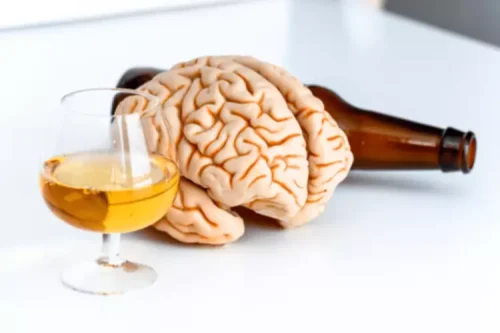
Studies also show racial bias makes it harder for Black and Hispanic Americans to find treatment. It typically takes eight years or longer to achieve long-term remission even with high quality treatment and medical care. Mable-Jones lost a decade to addiction, entering rehab and relapsing repeatedly. “We are literally surrounded by people who are in recovery from a substance-use disorder, but we don’t know it,” Kelly said. Less visible are the people who survive the illness and rebuild their lives.
What Are The Most Common Heavy Drinking Side Effects?

The most serious effect is Korsakoff’s syndrome, characterized in part by an inability to remember recent events or to learn new information. According to the CDC, more than one million people die yearly of cirrhosis, including over 40,000 people in the United States. “Being able to drink is a sign you are still healthy, not the cause of being in good health,” Stockwell said.
An Artist And A Scientist Take On The Stigma Of Addiction

There’s often a notable lack of compassion for people who are dying from alcohol use disorder among caregivers, family members and the general public. These health outcomes underscore the significant impact of alcohol how long do alcoholics live on average consumption on life expectancy, particularly for those with AUD. The consumption of alcohol, especially in excess, can lead to a variety of health issues that can ultimately shorten an individual’s lifespan.

Life expectancy and mortality
- Alcoholism is often ranked on a four-stage scale, ranging from pre-alcoholism to late alcoholism, end-stage alcoholism, and finally, death.
- The mortality rate ratios in people with AUD have been found to increase during the entire study period in both men and women for most age groups, particularly those aged years.
- The liver gains fats and inflammation, eventually leading to liver scarring.
- Active within the recovery community, Sophia serves as a valuable resource to patients in the program as they leave treatment to continue their journey to a successful recovery.
- Because alcoholism is a chronic disease and alcohol relapse is common, persistence is a necessity — but success is achievable.
The final stage of an alcohol use disorder is end stage alcoholism, which results from years of alcohol abuse. The individual in end stage alcoholism will experience serious mental and physical https://ecosoberhouse.com/article/who-sober-alcoholics-are-and-what-it-means-to-be-sober/ conditions, including possible life-threatening health conditions. In the study, alcohol abuse increased the rate of death for all causes, including diseases, medical conditions and suicide.
Adults drinking seven to 14 drinks per week could expect, on average, a six-month shorter life expectancy as of age 40
- 23 years ago Jack dedicated his life to helping others learn a new way of living free of active addiction.
- It usually lasts for between two and three days, and it can be fatal.
- The FHE Health team is committed to providing accurate information that adheres to the highest standards of writing.
This is a comparatively non-threatening level of drinking, which may not always lead to alcohol abuse. This often looks entails consuming a few drinks when out with friends. Despite efforts to hide their addiction, their drinking problem is quite obvious to others. Work performance usually suffers at this stage, and impairment in the workplace is common.
- The study of 600,000 drinkers estimated that having 10 to 15 alcoholic drinks every week could shorten a person’s life by between one and two years.
- Alcohol-related liver disease, or cirrhosis, is caused when a person drinks too much alcohol for a long time.
- In conclusion, alcoholism is a chronic disease that significantly impacts an individual’s life expectancy and overall well-being.
- If you or a loved one suffers from end-stage alcoholism, there is hope for recovery.
- Americans often see the more destructive side of addiction, drug crime, people slumped in doorways and family members who are spiraling downward.
- Our team of addiction medicine specialists, counselors, and treatment experts are committed to supporting you through every step of your recovery from detox right through to aftercare.
